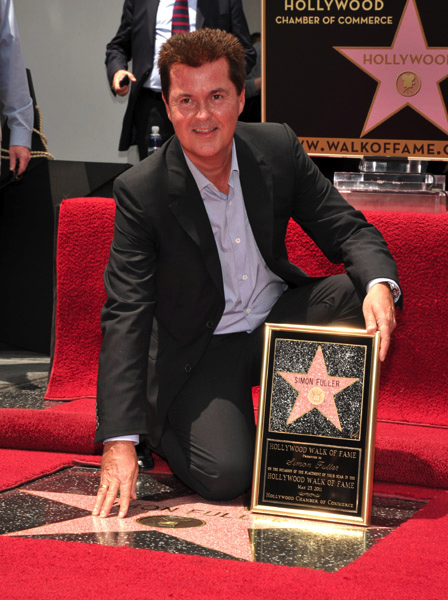The television show X Factor appears as a saviour of unknown artists, who otherwise wouldn’t find their way into the stardom of show business. However, underneath the veil of glitter, the naivety disappears and a bottom line profit of a music industry appears. This was acknowledged indirectly by Simon Cowell himself, in an interview with Piers Morgan. Simon said he didn’t sign a contract with a TV show Popstars, because he realised that the recording rights would be lost (3:20).
Two years later, Simon Cowell created X Factor. This lead Simon Fuller, the producer of Popstars, to sue X Factor for copyright infringement in 2004. The intellectual property rights story wasn’t as interesting as the performances, therefore it received little media coverage at the time. The lawsuit was settled quietly in 2005, with a clause that prevented X Factor from being aired in United States untill 2011. However, the story resurfaced again, this time the dispute was between Simon Fuller versus Fox channel and rights distributer FreemantleMedia.
In 2013, the lawsuit was settled out of court, which not only made Simon Fuller wealthier, but also gave him the credit for creating X Factor’s concept. While X Factor was contractually prevented from being aired in US for five years, the same show under the name of American Idol became a huge hit with the audience. American Idol at the time was one of the most expensive advertising showcases, 30-seconds costed $475,000. Simon Fueller’s achievements eventually were recognised, and the rivalry between him and Simon Cowell left no bad blood, as he thanked Simon during his Hollywood Walk of Fame inauguration.
X Factor is popular particularly because it engages the audience to take part in the show, from judging the often crazy auditions, to voting for their favourite artist during the final rounds.
With an average viewing figures of 33.48 million in US and 14.3 million in UK for season 7, it’s no wonder that the winner manages to sell a large number of singles. However, it’s the owner of recording rights that receives most of the money, not the artist. The artist instead wins a prize, an advancement of money which used to be £1 million in 2009, and now its only £150,000 for the first album. The royalty from sales of a single is typically around 15%, and that only comes from an approximate 47p that goes to the label from a single iTunes download.
Even though X Factor was copied on Popstars, the producers do not like then others do the same. In 2008, X Factor defended its intellectual property rights with vigour by forcing eXtra Factor’s musical producers to end the show after initiating legal action proceedings, for breach of its copyright.
X Factor is not the only show that’s interesting to observe from an intellectual property rights perspective in the entertainment industry. The music industry predominantly has been built upon the protection of a copyright monopoly. However, it has come under fire in the 21st century from new technologies and especially the internet. A recent event at the European Parliament called for reform to a copyright, which indicates that the future for entertainment’s industry appears to be an exciting one from a legal, political and cultural perspective. Therefore, there’s no business like show business.

